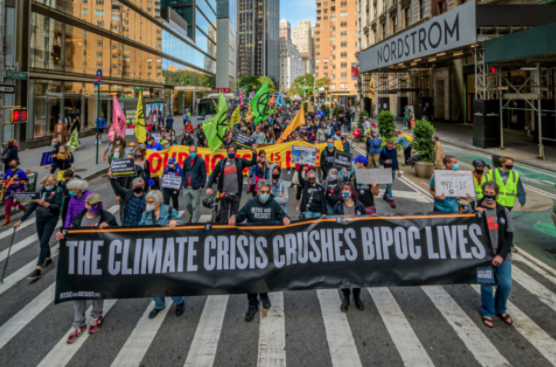The Energy in COVID-19 monthly research briefs collect the news read by our working group members. The fourth edition reflects topics of discussion as unfolding in headlines within the past month.
The articles gathered for our September research brief continue to explore the manifold ways in which COVID-19 has revealed and amplified disparities produced by inhumane energy systems. Energy systems--along with the infrastructures of which they are composed--are always more than mere networks for the transport of people, goods, and information; they are also (contested) political projects. The placement, technological makeup, and financial models that characterize energy systems represent specific techniques and strategies of power put towards the materialization of economic ideologies, aesthetic sensibilities, ethical commitments, and sensual desires (Larkin 2013). While the reports continue to range in topic and coverage, this month's articles focus more narrowly on “energy imaginaries” where an energy equitable COVID-19 recovery is envisioned.
Though current economic uncertainty and unveiled structural inequities have created an impetus for stakeholders to bring the weight of this structurally racist past into their imaginations of energy futures, disaster scholars have cautioned against assuming the revelatory power of catastrophes (Barrios 2017). It remains to be seen if COVID-19 policies will go beyond recovering to “business as usual” and move towards the reparation of broken energy infrastructures, systems, and economies, alleviating the burdens and compounded vulnerabilities of historically disadvantaged and oppressed populations. As discussed in our ongoing section on internet access during the pandemic, one sign of hope lies in the City of Philadelphia’s recent Digital Equity Plan, which offered free internet access to its low-income communities.
That being said, around the world, energy systems continue to reflect colonial logics of extraction, exploitation, and sacrifice rationalized by white supremacist, capitalist, and individualist ideologies. Building upon themes apparent in prior research briefs, this brief also discusses articles that show how these legacies set the stage for compounded and exacerbated vulnerabilities. The current utility shutoffs in California, undertaken in response to ongoing wildfires, represent, in part, how an ideology of deregulation is behind the state’s decades-long failure to effectively govern its utilities during the climate crisis. Meanwhile, amidst COVID-19 and the worst economic downturn since the Great Depression, some of the United States’ most energy vulnerable households face the continued threat of utility shut-offs from an inability to pay their bills. Together, these events show the continued sacrifice of the environment, communities of color, and the working class to adhere to and protect the interests of industry and the neoliberal status quo.

Photo by Erik McGregor/LightRocket via Getty Images: https://www.wbur.org/cognoscenti/2020/09/23/utility-bills-energy-climate...
Cite as: Morgan Sarao, James Adams, Briana Leone, Ali Kenner, and Andrew Rosenthal. "September Research Brief - October 12th 2020" Energy in COVID-19. The Energy Vulnerability Project. Platform for Experimental and Collaborative Ethnography. Retrieved from https://housingenergy.info/content/energy-covid-19-september-research-brief
The Energy in COVID-19 monthly media briefs collect the latest news read by the Energy in COVID-19 working group members. The overall aim of the briefs is to showcase how disasters can shore up policy changes, particularly around economic crises. All media briefs can be found in this timeline essay.
Visit the Energy in COVID-19 main page for more information about the working group.